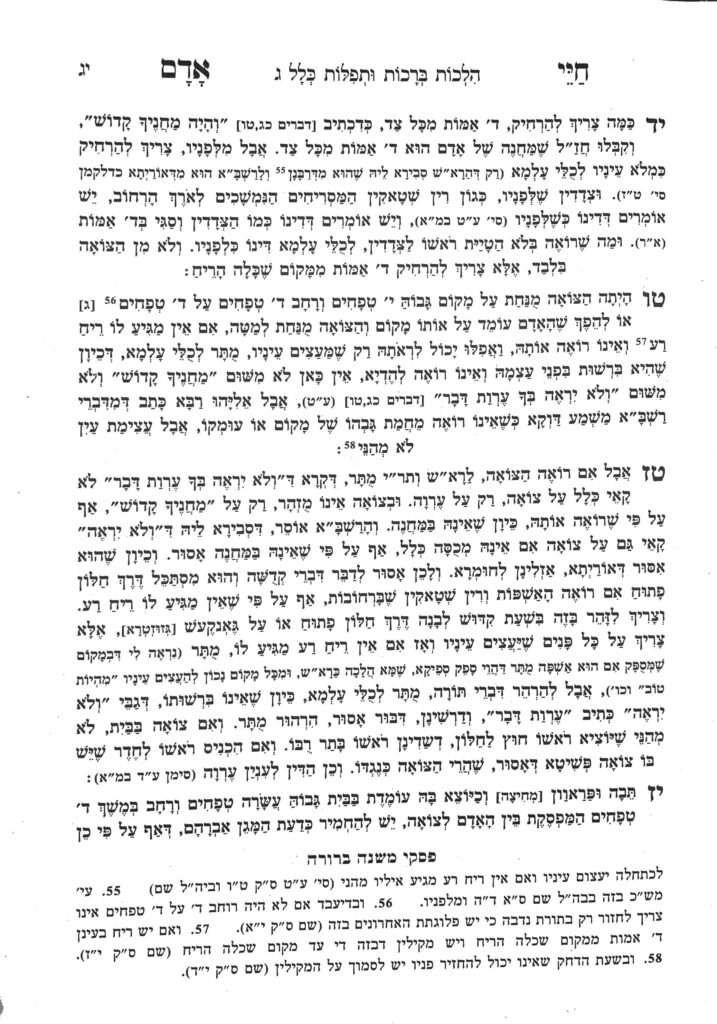We have finished siman 16 and left off with a question regarding shemiah (listening). If one is sitting in a car and thinking in Torah, if they see tzoah on the road, they do not have to stop their thoughts. The question we will discuss today is whether they would have to stop listening to divrei torah, whether from a live person or from a recording.
In siman 47. The Shulcan Aruch writes that one can be meharher (think) divrei torah before reciting birchas hatorah, and the only issur is to speak words of torah before reciting birchas hatorah. (Note that the Gra disagrees and holds that hirhur is also assur before birchas hatorah.) The Shaarei Teshuva asks whether there is an issur of listening to divrei torah before reciting birchas hatorah, due to the concept of shomeah k’oneh (that listening to someone fulfilling a mitzvah, such as limud hatorah, has the status as though they are fulfilling the mitzvah themselves). The Shaarei Teshuva holds, based on a Tosfos, that shomeah k’oneh does apply to listening to words of Torah, so even according to the Shulchan Aruch who permits thinking in Torah, it would be assur to listen to others speaking divrei torah. Thus, one cannot listen to others speaking in divrei torah before reciting birchas hatorah.
Applying that concept here, we have learned (shiur 1521) that we are machmir for the opinion of the Rashba, that speaking torah when one can see tzoah is assur even if it is in a different reshus. Thus, although we learned yesterday that thinking in Torah is muttar, listening to another speaking words of Torah would be assur, due to shomeah k’oneh.
However, the issur of shomeah k’oneh only applies to a human being speaking. If one is listening to a recording, the issue of shomeah k’oneh does not apply, but rather is considered hirhur and is muttar.
At the end of siman 16, the Chayei Adam discusses a case of tzoah in a house, and a person who wishes to stick their head outside of the house in order to avoid the tzoah. He writes that such an option does not help, but this is not a common case.
In simanim 17-21, the Chayei Adam discusses various types of partitions placed between a person and tzoah. In siman 22, he points out that these partitions only work if there is no smell. If there is a smell, the tzoah is considered as extending itself to as far as the smell reaches, as we have learned previously (shiur 1518).
Summary
If tzoah is in a different reshus, even if that different reshus is within four amos of a person, the tzoah is not a problem, provided they cannot see or smell it.
There is a machlokes whether, when the tzoah is in a different reshus, one can avoid seeing tzoah by simply shutting their eyes. Lechatchila one should not rely on shutting their eyes, but if they have no choice, and are unable to turn their body or head, they may rely on it.
Nevertheless, in the above case, hirhur is muttar even when one cannot avoid seeing the tzoah. Hirhur includes thinking in one’s head, or listening to a recording. However, listening to a live person speak torah is considered shomeah k’oneh and is assur.



